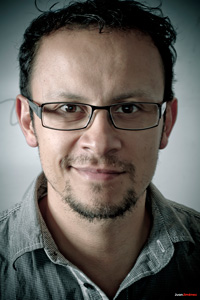My research interests include the development and evaluation of well-being personal informatics technology that supports users in their daily life, Human-Computer Interaction (HCI), applied research, field studies, healthcare and user empowerment.
My PhD thesis “Beyond the numbers: a user-centered design approach for personal reflective healthcare technologies“, tackles the current healthcare paradigm shifts towards considering the patients’ home as the primary self-care environment. Health care is changing from being solely delivered by professionals in hospitals, to considering daily-life experiences and patients’ personal contexts. In order to meet this paradigm, the interaction between healthcare technologies and patients requires careful attention in conceiving successful introduction and adoption of innovative technologies to support home care.
Based on two different health care context that involve patient’s responsibility towards personal care, namely (a) Total Hip Replacement home recovery (THR) and (b) physical activity in knowledge workers (KW), my thesis embraces the aforementioned paradigm with a focus on the role of technological homecare innovations to empower patients undertake a more active role in the care practice. Acknowledging the increasing presence of sensor based homecare technologies to facilitate the monitoring of health conditions, my thesis discusses the role of large data sets collected by these technologies in relation to users’ experience of their health condition. A contrast between assistive and supportive homecare technologies is identified, proposing that supportive home healthcare technologies can be better integrated into people’s daily life as they empower users to play an active role in contributing, reflecting and learning from the big amount of data collected by these technological systems.
From a user centered design approach, my research discusses the methodological challenges to design successful sensor based healthcare technologies. I am interested in the development of appropriate methods and tools to gather user requirements and translate these requirements into supportive mechanisms. My approach first considers users’ health experiences and daily life context to bring together the complexity of health activities in the design of supportive systems. In-situ self-reporting techniques are implemented for understanding users’ health conditions in their living context and during their daily activities. Secondly, by means of several design interventions in the field the integration of experiential and sensed data to develop user-centered supportive health systems in the context of daily life practices is explored. An empowerment model called K.A.R.A. (Knowledge, Awareness, Reflection and Action) and a mechanism that facilitates this process called mCR (Mico-cycles of Self-reflection) were designed and explored for the design of supportive mechanisms as means to empower users. Based on my research, several master graduation projects and one master class explored a diverse of scenarios, such as the sustainable behavior of household occupants regarding energy consumption, prostate cancer patients, Total Hip Replacement, enthusiast cyclists and Attention Deficit Hyperactivity Disorder. From my PhD thesis I discuss the research limitations and contributions of real life experience based research tools and its implication to the design of empowering health systems.
Promoters: Prof. dr. David Keyson and Prof. dr. ing. Paul Havinga Supervisor: Dr. Natalia Romero




